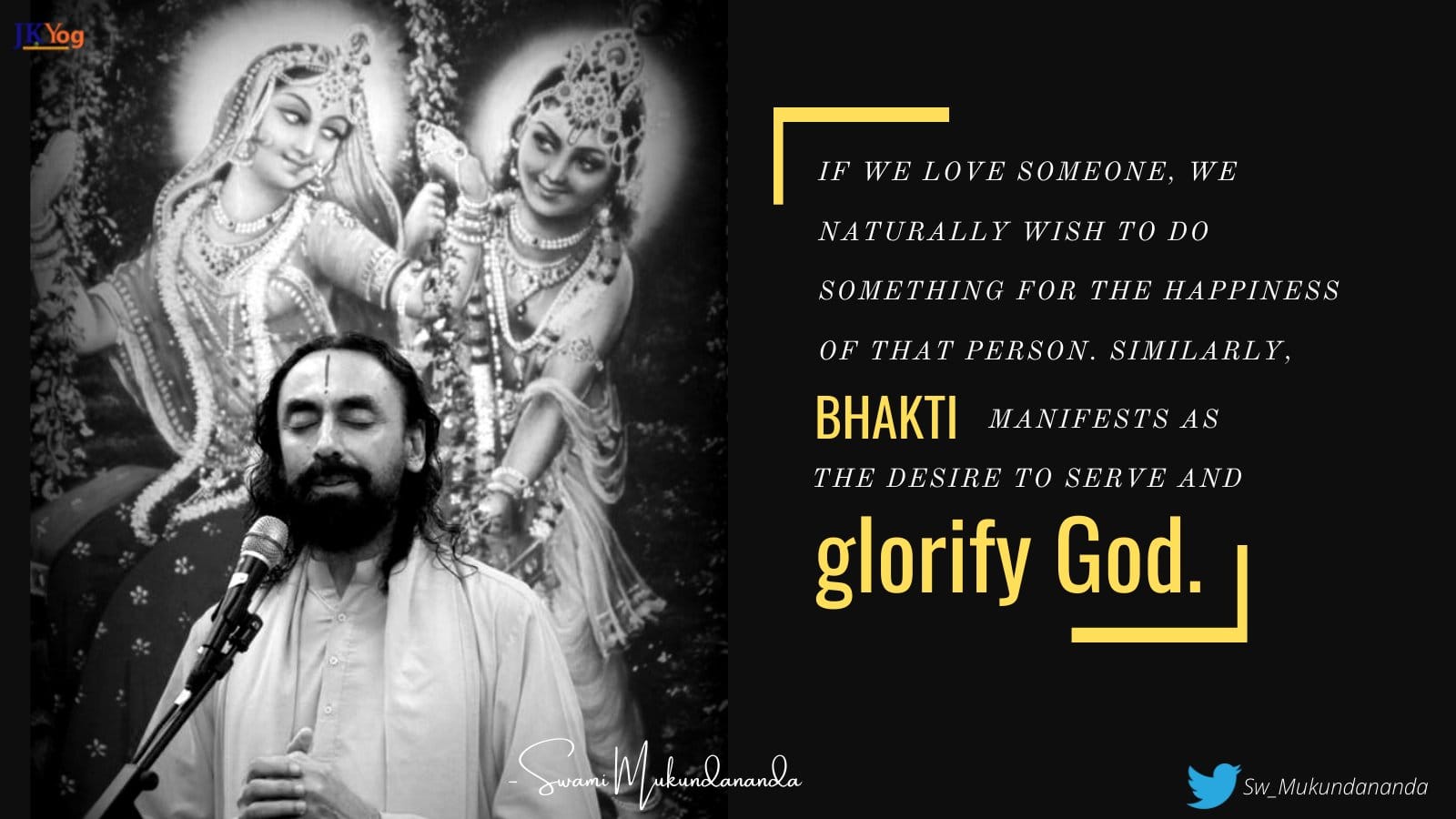Love is the most profound and universal emotion that connects all living beings. However, the purest form—unconditional love—is rare and difficult to cultivate. Often, human love comes with expectations, conditions, and attachments. Bhakti Yog, the path of devotion in Hindu philosophy, offers deep insights into unconditional love and how one can attain it through surrender, faith, and selflessness.
Understanding Unconditional Love
Unconditional love exists beyond expectations, desires, and reciprocation. It is selfless, compassionate, and eternal. Unlike conditional love, which depends on circumstances and personal gains, unconditional love remains unchanged, no matter the situation.
Bhakti Yog teaches that divine love is the highest form—love for the Supreme. By cultivating this divine love, one can transcend worldly attachments and develop love free from selfish motives. This form of devotion can be seen in the lives of saints, devotees, and scriptures that exemplify Bhakti Yog.
In Chapter 12 of the Bhagavad Gita, Shree Krishna explains to Arjun that devotees who worship His personal form are most dear and that the Bhakti Yog path is the swiftest way to liberation. Our absorption, faith, and surrender to the Supreme Lord are required to attain Him, and this relationship is more difficult with the formless Brahman.
Bhakti Yoga: The Path of Devotion
Bhakti Yog is one of the four main paths of Yog, alongside Jñāna (knowledge), Karma (action), and Raja (meditation). It emphasizes love, surrender, and devotion to the Divine, whether in the form of a deity, the universe, or an abstract spiritual force.
This path does not require renunciation or intellectual mastery; instead, it focuses on the heart's longing for connection with the Divine. The key practices of Bhakti Yog include:
- Kirtan (Chanting): Singing hymns and praises to invoke divine love.
- Satsang (Spiritual Gatherings): Associating with like-minded devotees to strengthen faith and devotion.
- Seva (Selfless Service): Serving others without expecting anything in return.
- Dhyana (Meditation on the Divine): Contemplating the form, name, and qualities of the Divine.
- Shravan and Smaran (Listening and Remembering): Studying sacred texts and keeping the Divine in one's thoughts.
Shree Krishna declares in the Bhagavad Gita (12.12):
"श्रेयो हि ज्ञानमभ्यासाज्ज्ञानाद्ध्यानं विशिष्यते |ध्यानात्कर्मफलत्यागस्त्यागाच्छान्तिरनन्तरम्||"
Translation: Better than mechanical practice is knowledge; better than knowledge is meditation. Better than meditation is renunciation of the fruits of actions, for peace immediately follows such renunciation.
Through these practices, Bhakti Yogis cultivate deep, unconditional love that extends beyond human relationships to the divine source of all creation.
Lessons from Bhakti Yog on Unconditional Love
1. Surrender and Trust
One of the fundamental principles of Bhakti Yog is surrender (Sharanagati). To love unconditionally, one must let go of ego, control, and attachments. Surrender does not mean weakness; rather, it signifies trust in a higher power, believing everything happens for the best.
Example: The great devotee Mirabai surrendered completely to Lord Krishna despite societal challenges. Her love for Krishna was so pure that she remained undeterred in her devotion, showing that true love transcends worldly barriers.
2. Selflessness and Sacrifice
Unconditional love requires selflessness—giving without expecting anything in return. Bhakti Yoga teaches that devotion is not about seeking rewards but losing oneself in divine love.
Example: Hanuman, Lord Ram's greatest devotee, epitomizes selfless devotion. His only desire was to serve Ram, and his love was not driven by personal gains but by absolute surrender and dedication.
3. Seeing the Divine in All
True Bhakti does not limit love to a personal deity but extends it to all beings. A Bhakt (devotee) sees the Divine in every creature and treats everyone with love and respect.
Example: Saint Tukaram, a Bhakti saint, taught that serving humanity is the highest form of devotion. His love for the Divine translated into compassion for all beings, showing that unconditional love is universal.
4. Devotion Beyond Circumstances
Worldly love fluctuates with circumstances, but divine love remains steady. Bhakti Yog teaches that love should not be dependent on favorable situations.
Example: Sudama, a childhood friend of Lord Krishna, remained devoted despite his poverty. His love for Krishna was beyond material expectations, and in return, Krishna showered him with blessings—not because Sudama asked, but because of his pure devotion.
5. Love as a Path to Liberation
In Bhakti Yog, love is not just an emotion but a means to attain Moksha (liberation). When one loves the Divine unconditionally, the soul transcends the cycle of birth and death and merges with the ultimate truth.
Example: Andal, a Tamil saint-poet, merged with Lord Vishnu through her intense love and devotion. Her poetry expresses the soul's yearning to unite with the Divine, showing that love is the highest spiritual path.
Practical Steps to Cultivate Unconditional Love
- Practice Gratitude: Be thankful for what you have rather than focusing on what you lack. Gratitude nurtures unconditional love.
- Meditate on Love: Spend time daily contemplating the nature of love and divine presence.
- Serve Selflessly: Engage in acts of kindness without expecting recognition or rewards.
- Forgive Easily: Let go of resentment and grudges; forgiveness is unconditional love.
- Engage in Devotional Practices: Chant, sing, or read scriptures that inspire love and devotion.
- Accept Imperfections: Love should not be based on perfection but on acceptance of others as they are.
- See the Divine in Everyone: Treat all beings with respect and kindness, seeing them as expressions of the Divine.
Conclusion
As taught in Bhakti Yog, unconditional love is the highest and purest form of love. It is selfless, unwavering, and free from expectations. By following the path of Bhakti, one can cultivate divine love, leading to inner peace, fulfillment, and spiritual liberation. In a world driven by conditions and transactions, the lessons from Bhakti Yog remind us that true love lies in surrender, selflessness, and devotion. The Bible says, "Love is patient, love is kind. It does not envy, it does not boast, it is not proud. It is not rude, it is not self-seeking, it is not easily angered, and it keeps no record of wrongs. Love does not delight in evil but rejoices in the truth." 1 Corinthians 13:4-6. Let us strive to embody these teachings and make selfless love a way of life.

Call to Action
Learn unconditional love by reading the inspiring stories of Bhakti Saints in Swami Mukundananda's latest book, Nourish Your Soul: Inspiration from the Lives of Great Saints.
Watch these beautiful lectures from Swami Mukundananda on True Love, The Unconditional Love of Radha Rani, and How To Fall in Love with God.
